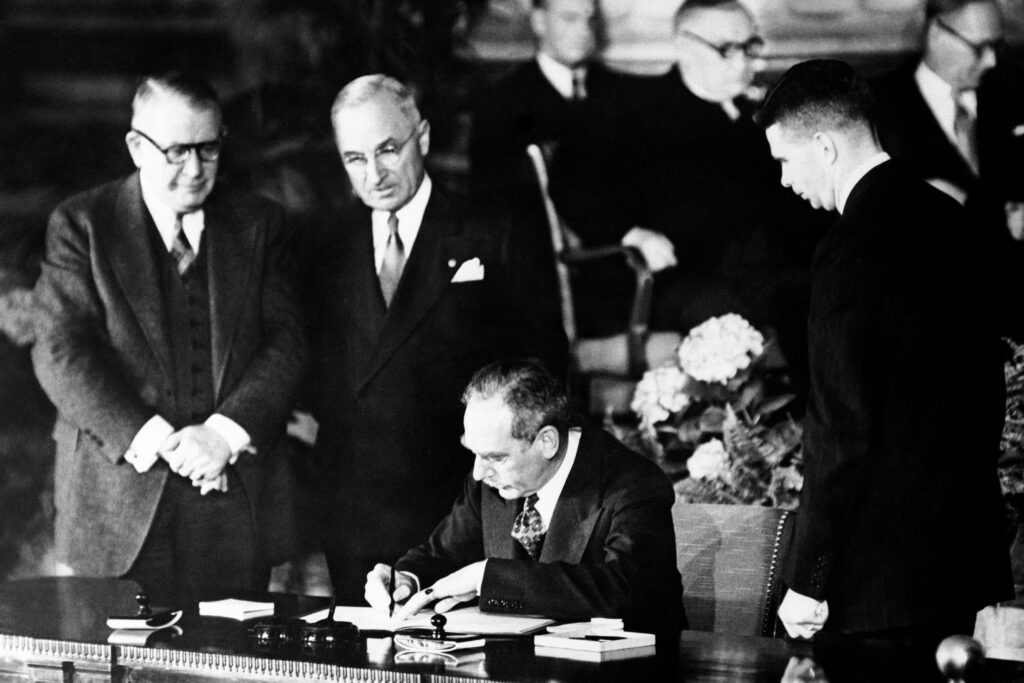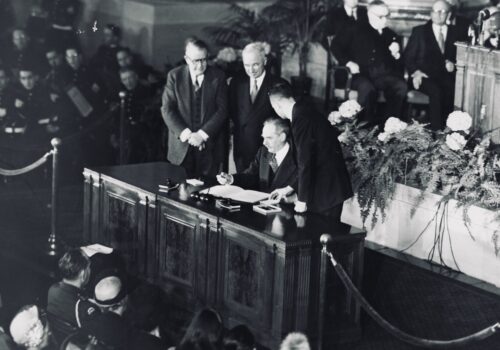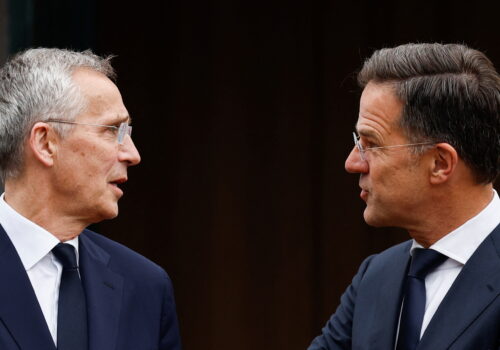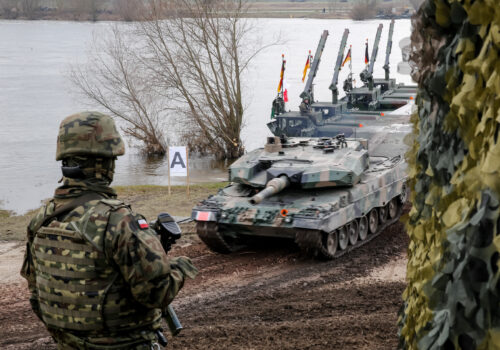NATO’s founders, who signed the world’s most enduring and successful alliance into being seventy-five years ago today, had an advantage that today’s leaders cannot replicate.
All of them had experienced the horrors of World War II, and a great many of them also personally knew the ravages of World War I. So they understood the urgency of their moment.
That deficit of memory is the greatest peril of 2024. It is one that has resulted in allied dithering and insufficient measures to counter Russian despot Vladimir Putin and his like-minded partners in China, Iran, North Korea, and elsewhere.
One cannot change the historical experience of today’s NATO leaders and their electorates. Even President Joe Biden, now age eighty-one, was only two years old when Germany surrendered in May 1945 and Japan followed in September. The best one can do today is ask them to listen to President Harry S. Truman’s address on the occasion of the signing of the North Atlantic Treaty on April 4, 1949, then hope they heed its warnings.
They can read it here, listen to it here in full, or watch an excerpt here.
“Twice in recent years, nations have felt the sickening blow of unprovoked aggression,” Truman said. “Our peoples, to whom our governments are responsible, demand that these things shall not happen again. We are determined that they shall not happen again.”
That founding treaty was signed by just twelve nations then, but it continues to be the north star document for NATO’s thirty-two members now, with Finland and Sweden the latest to join.
“This treaty is a simple document,” Truman said, likening it to a homeowners’ agreement to protect the neighborhood. Its signatories agreed to “maintain friendly relations and economic cooperation with one another, to consult together whenever the territory or independence of any of them is threatened, and to come to the aid of any one of them who may be attacked.”
Continued Truman, “It is a simple document, but if it had existed in 1914 and in 1939, supported by the nations who are represented here today, I believe it would have prevented the acts of aggression which led to two world wars.”
Apply that logic now. With the world facing the greatest threat to global order since the 1930s, the Alliance must do everything in its power to defend Ukraine and, as soon as the seventy-fifth anniversary NATO Summit in Washington this July, provide Ukraine an accelerated path to Alliance membership.
History has taught that the risks of inaction are greater than those of action. We have learned that appeased dictators grow more dangerous.
It was fitting that NATO Secretary General Jens Stoltenberg and US Secretary of State Antony Blinken participated this week as an eight-foot bronze statue of Truman was unveiled in Brussels at the residence of the US ambassador to NATO.
Back in 1949, Truman said this, “We do not believe that there are blind tides of history which sweep men one way or another. In our own time, we have seen brave men overcome obstacles that seemed insurmountable and forces that seemed overwhelming. Men with courage and vision can still determine their own destiny.”
The Spanish-American philosopher George Santayana wrote, “Those who cannot remember the past are condemned to repeat it.” Biden and his allies can best mark this NATO anniversary by summoning memory, sustaining the Alliance, and countering today’s despots.
Frederick Kempe is president and chief executive officer of the Atlantic Council. You can follow him on Twitter: @FredKempe.
This edition is part of Frederick Kempe’s Inflection Points Today newsletter, a column of quick-hit insights on a world in transition. To receive this newsletter throughout the week, sign up here.
Further reading
Thu, Apr 4, 2024
NATO at 75: ‘The most powerful and successful alliance in history’
New Atlanticist By Christopher Skaluba, Philippe Dickinson, Dominykas Kaminskas
Maintaining NATO’s effectiveness requires recommitting to the Alliance’s transatlantic vision today, tomorrow, and into the years ahead.
Thu, Mar 7, 2024
What kind of leader is required for the future of the NATO Alliance?
New Atlanticist By Timo S. Koster
Dutch Prime Minister Mark Rutte is the clear front-runner to be the next secretary general, but his candidacy is not quite assured.
Wed, Apr 3, 2024
NATO at 75: The Alliance’s future lies in Ukraine’s victory against Russia
New Atlanticist By Ian Brzezinski
As NATO turns seventy-five, the Alliance’s future as a credible deterrent hinges on whether it is successful in helping Ukraine defeat Russia.
Image: Dean Acheson, United States Secretary of State, puts his name to the North Atlantic Treaty at the ceremony in the auditorium of the State Department in Washington D.C, at which the Foreign Ministers of 12 nations signed the pact. Watching him are President Harry S Truman (second from left), and Vice-President Alben Barkley (left). In the background can be seen Foreign Secretary Ernest Bevin.



